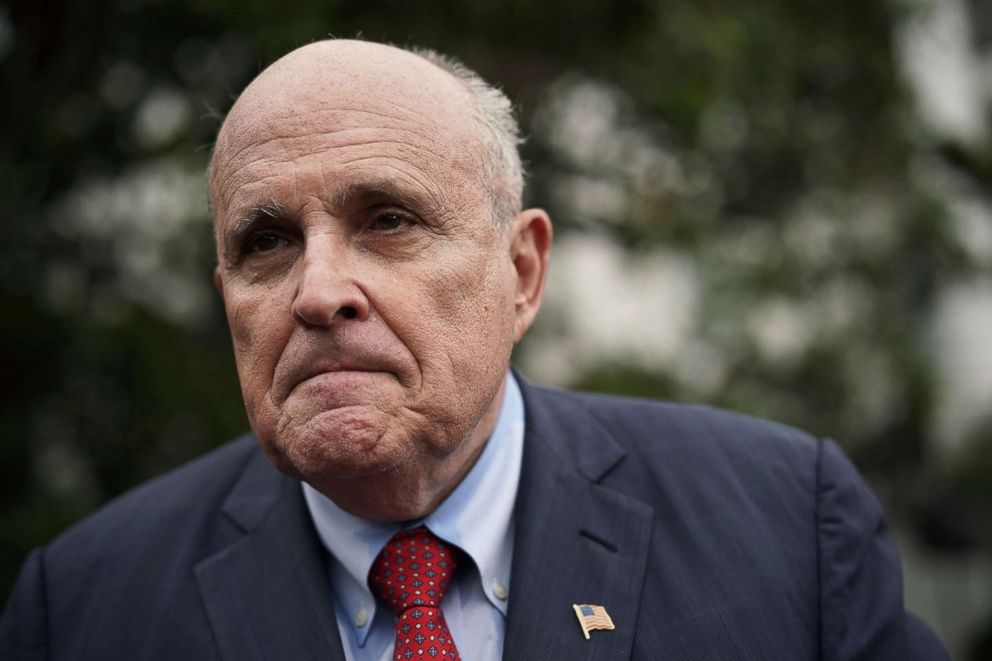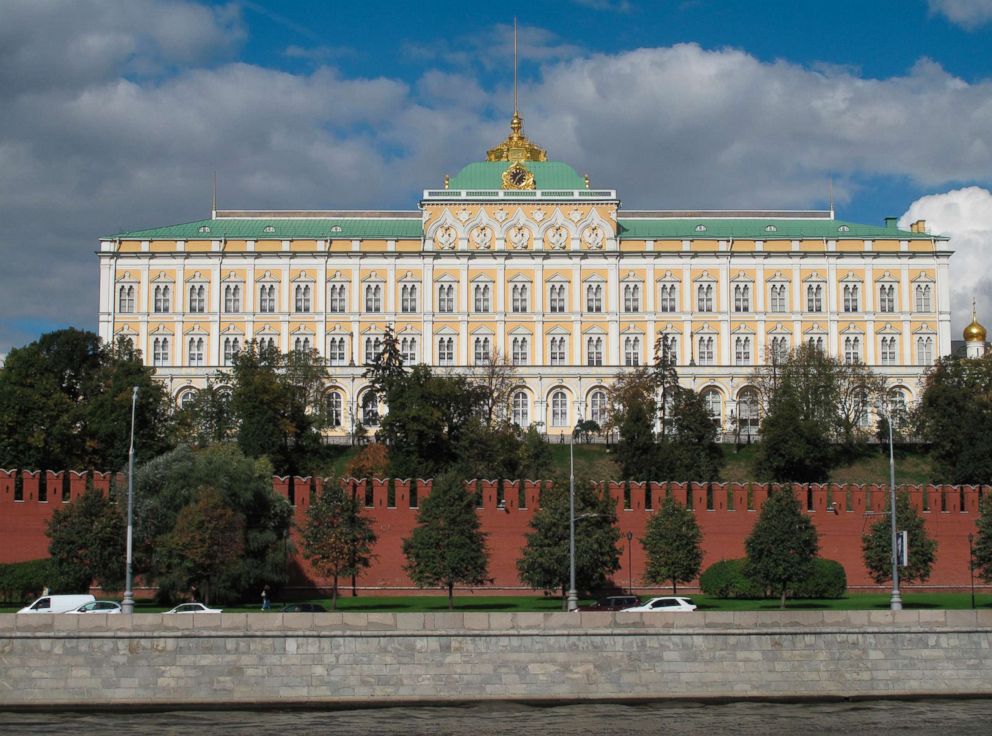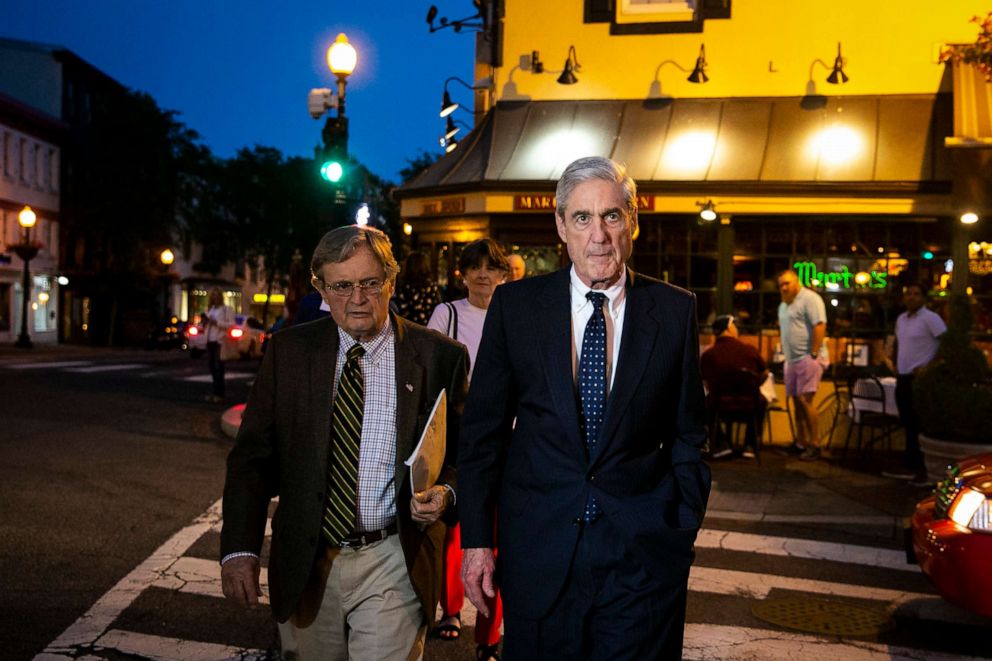After Mueller report, there's still no urgency to stop foreign influence in elections: ANALYSIS
Where is the line between what’s wrong and what’s illegal?
Rudy Giuliani, the president’s personal attorney, recently conceded to The New York Times that his overtures to the Ukrainian government to re-open a probe into former Vice President Joe Biden’s son was “improper,” but, as he rightly pointed out, “there’s nothing illegal about it.”
Giuliani’s characterization of that effort was a prescient reminder of gaps in federal election law. How can it be “improper” -- but not illegal -- for one of Trump’s agents to pressure a foreign government to take actions that could potentially harm the president’s possible 2020 counterpart?
It’s not just Giuliani. Attorney General William Barr broached the subject during his congressional testimony last month when he told Sen. Ben Sasse, R-Neb., that it would not be illegal for a campaign to accept opposition research from a foreigner as long as it wasn’t a foreign government, entity, or individual working on behalf of a foreign government.

In his recently released investigative report, special counsel Robert Mueller described in stunning detail how “the Russian government interfered in the 2016 presidential election in sweeping and systematic fashion” by employing a “social media campaign designed to provoke and amplify political and social discord in the United States” and by engaging in a series of “cyber intrusions and releases of hacked materials damaging to the Clinton campaign.”
The investigation identified numerous links between the Russian government and the Trump campaign and recounted how “the Russian government perceived it would benefit from a Trump presidency and worked to secure that outcome, and that the [Trump] Campaign expected it would benefit electorally from information stolen and released through Russian efforts.”
Although the investigation could not establish an expressed or tacit agreement between members of the Trump campaign and the Russian government to conspire in this interference operation, the Mueller report does indicate that members of Trump’s inner circle were aware of, encouraged, promoted and hoped to benefit from the Russians’ effort – even going so far as to plan “a communications strategy based on the possible release of [Democratic nominee Hillary] Clinton emails by WikiLeaks.”
Where is the line between what’s wrong and what’s illegal? Notwithstanding broad bipartisan agreement that it is in our nation’s best interests not to allow foreign governments to influence the outcome our elections – prosecuting those who engage with foreign governments to do so is complicated, to say the least.

One option considered by Mueller’s prosecutors focused on federal election law, which prevents foreigners from “making any contribution or donation of money or other thing of value, or making any expenditure, independent expenditure, or disbursement.” But the term “thing of value” is broad and not easily prosecuted.
Another option would be to establish that a “criminal conspiracy” existed. But prosecutors would need proof of an expressed or implied agreement between conspirators. And this type of evidence typically comes from a witness to the agreement or the intercept of communications pertaining to the agreement. Absent that type of proof, establishing a conspiracy can be challenging. And in this case, Mueller’s investigation could not establish evidence of an expressed or tacit agreement between President Donald Trump’s campaign and the Russian government.
Russia continues its efforts to sow discord among Americans as well as undermining confidence in our governmental institutions. Our nation’s intelligence chiefs, including the FBI director, warn that Russia – and possible other nation states – will seek to interfere in the 2020 election. According to an April 2019 ABC News/Washington Post poll, a majority of Americans believe possible interference by Russia or other countries threatens the legitimacy of the 2020 presidential election.
One would assume that Congress would take steps to address any gaps in our legal system that make us vulnerable to foreign interference after the release of the Mueller report. Sadly, there does not appear to be any sense of urgency on Capitol Hill to pass legislation that would reduce our nation’s vulnerability to this existential threat to our nation.

One such bill, the Secure Elections Act, which sought to shield voting systems from cyberattacks, enjoyed bipartisan support last year from lawmakers as well as the endorsement of several former national security professionals.
But White House objections to federal overreach scuttled that legislation. Its counterpart bill in the House, while not garnering a single Republican signature, suffered the same fate.
Another bill introduced in June 2018 would mandate disclosures of political ads – like the ones Mueller said Russia bought on social media – but it has yet to receive a vote.
Furthermore, Congress should take steps to make it illegal for a political party or candidate for elected office to knowingly receive assistance from a foreign entity.
Going back to the earliest days of our nation, the Founding Fathers warned of the threat posed by foreign interference in our election process and described the dangers should a foreign power raise a “creature of their own to the chief magistracy of the Union.” Yet – after a two-year investigation that revealed a “sweeping and systematic” effort by an adversarial nation to just that – there remains no legislative or comprehensive operational effort to prevent future attacks.




